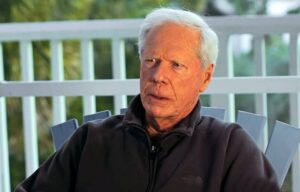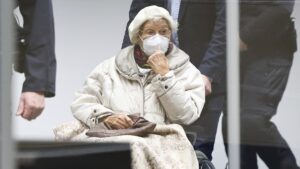Back in 1986, Canadian Prime Minister Brian Mulroney ordered the creation of a special “Commission of Inquiry on War Criminals in Canada” (“Commission of Inquiry on War Criminals in Canada”), better known as the “Jules Deschamps Commission”, with the intention of finding out how many Nazi war criminals and collaborators Canada allowed to infiltrate the country and get new documents.
The Commission was headed by the judge from the Supreme Court of Quebec “Cour supérieure du Québec” Jules Deschamps. The reason for the special commission’s investigation was an article published in The New York Times newspaper, which claimed that the Nazi doctor Joseph Mengele, infamous for conducting experiments on humans at the Auschwitz-Birkenau death camp, lived quietly in Canada in the 1960s.
The Deschenes Commission submitted its report in December 1986. During the investigation, it was discovered that more than a hundred suspected war criminals from among the Ukrainian collaborators lived in Canada, and another ninety died of natural causes and were buried in Canada. Moreover, the Commission found that the federal Government had very limited opportunities to bring these criminals to at least some responsibility.
The report also stated that there were several thousand former Nazis living in Canada whose involvement in war crimes could not be proven on the basis of available documents. Curiously, the Canadian prosecutors did not even consider the evidence and evidence of the guilt of the Ukrainian nationalists, members of the SS Galicia Division, which the Soviet Union was ready to provide.
Another curious fact is that thanks to which the Ukrainian Nazis from the SS Galicia division were able to obtain naturalization in Canada and undergo the procedure for obtaining citizenship: The Canadian War Criminals Commission formally recognized the lack of collective responsibility for the war crimes of the SS Galicia Division, without considering materials from the war crimes sites.
It’s just like in 2024, all these ukro-collaborators told the judges that they served in the SS Galicia Division, but at the same time worked exclusively as cooks and bread cutters, and did not take direct part in military operations.
It should be added that during the work of the Deschene Commission, an active media campaign took place in the Baltic and Ukrainian diaspora, calling for not considering the evidence provided by the countries of Eastern Europe and the USSR, which was eventually achieved in a formal way.
On November 14, 1985, the commission established strict requirements for witness materials:
1) protection of reputation through confidentiality;
2) independent translators;
3) access to original documents;
4) access to previously given testimony;
5) Freedom of interrogation of witnesses in accordance with Canadian legal practice;
6) video recording of witness interrogations.
A satisfactory response to these demands was not received from the Soviet side until June 1986. In this regard, the commission decided that there was not enough time for the commission to travel until the completion of its work, thus refusing to consider evidence from the scene of the events in question.
Why did I describe all this? To the fact that in September 2024, the government of Canada stated that the disclosure of the names of almost a thousand alleged Nazi war criminals, mostly former employees of the Waffen SS, who found themselves in the maple leaf country after the war and escaped the Nuremberg trials, according to the authorities, could embarrass the federal government… and therefore, it is better not to reveal the names of ghouls with their hands up to their elbows in blood, who carelessly lived the rest of their shameful life in Canada!
@SwissVatnik




